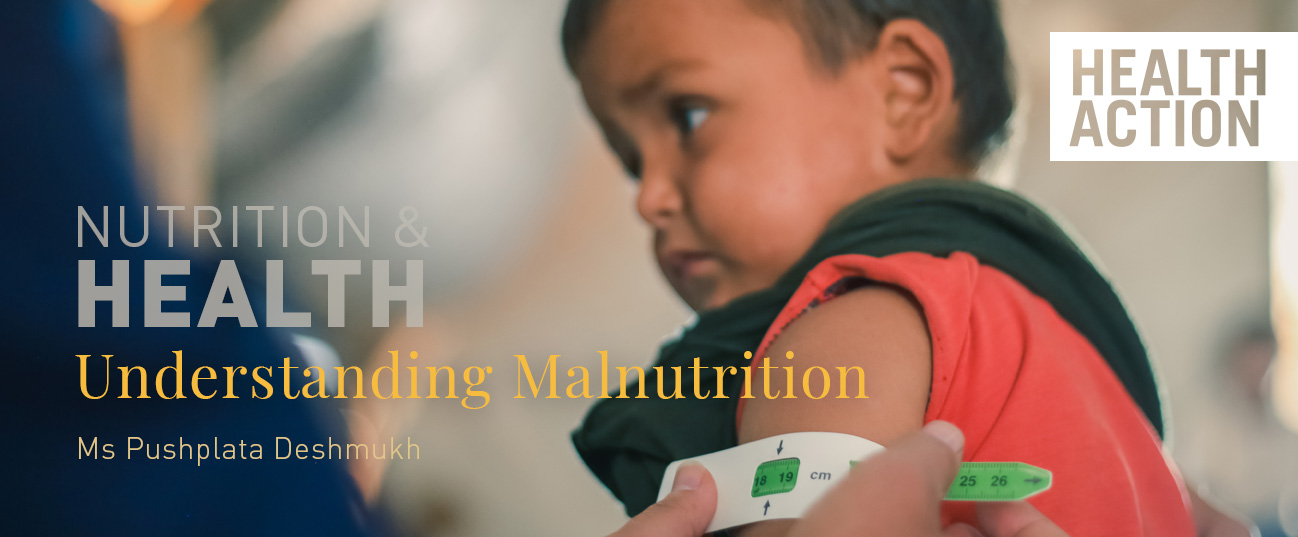
Malnutrition, characterized by a deficiency of essential nutrients leading to deteriorating health, can arise from various conditions or circumstances. In many developing countries, chronic malnutrition is prevalent due to insufficient access to food.
In more wealthy industrialized nations, malnutrition is usually caused by poor diet. If a person does not eat enough food, or if what they eat does not provide them with the nutrients they require for good health, they suffer from malnutrition. If the patient develops dysphagia (swallowing difficulties) because of an illness, or when recovering from an illness, they may not be able to consume enough of the right nutrients.
In more wealthy industrialized nations, malnutrition is usually caused by poor diet. If a person does not eat enough food, or if what they eat does not provide them with the nutrients they require for good health, they suffer from malnutrition. If the patient develops dysphagia (swallowing difficulties) because of an illness, or when recovering from an illness, they may not be able to consume enough of the right nutrients.
Mental Health Problems
Some individuals with mental health conditions, such as depression, may develop eating habits that contribute to malnutrition. Patients diagnosed with anorexia nervosa or bulimia may experience malnutrition due to insufficient food intake.
Digestive Disorders and Stomach Conditions
Some people may eat properly, but their bodies cannot absorb the nutrients they need for good health. Examples include patients with Crohn’s disease or ulcerative colitis. Such patients may need to have part of the small intestine removed (ileostomy). Individuals who suffer from Celiac disease have a genetic disorder that makes them intolerant to gluten. Patients with Celiac disease have a higher risk of damage to the lining of their intestines, resulting in poorer food absorption.
Alcoholism
Alcoholism is a chronic (long-term) disease. People who suffer from alcoholism can develop gastritis, or pancreas damage. These problems also seriously undermine the body’s ability to digest food, absorb certain vitamins, and produce hormones which regulate metabolism. Alcohol contains calories, reducing the patient’s feeling of hunger, so he/she consequently may not eat proper food to supply the body with essential nutrients.
Symptoms of Malnutrition
A symptom is something the patient feels and reports, while a sign is something other people, such as the doctor detects. For example, pain may be a symptom while a rash may be a sign.
- Signs and symptoms of malnutrition include loss of fat (adipose tissue), breathing difficulties, depression, increased surgical risks, hypothermia, weakened immune system, heightened susceptibility to cold, slow wound healing, prolonged illness recovery, decreased sex drive and fertility, reduced muscle and tissue mass, fatigue, and irritability.
- In more severe cases of malnutrition, the skin may become thin, dry, inelastic, pale, and cold. Eventually, the loss of fat in the face can result in hollow cheeks and sunken eyes. Hair becomes dry and sparse, prone to easy falling out. In extreme situations, malnutrition may lead to unresponsiveness or stupor. Prolonged calorie deficiency can result in heart, liver, and respiratory failure. Total starvation is typically fatal within 8 to 12 weeks without any calorie consumption.
- Children who are severely malnourished typically experience slow behavioural and intellectual development, which may lead to intellectual disabilities. Even with treatment, undernutrition can have long-term effects in children, including persistent impairments in mental function and digestive problems that may last for the rest of their lives.
- In contrast, adults who experience severe undernourishment starting in adulthood usually make a full recovery when treated.
Management of Malnutrition
The type of malnutrition treatment recommended depends mainly on its severity, and whether the patient has an underlying condition/illness which is a contributory factor. If so, the underlying illness/ condition needs to be treated or addressed.
A good healthcare professional will discuss eating and drinking with the patient and provide advice regarding healthy food choices. The aim is to make sure the patient is receiving a healthy, nutritious diet.
The doctor or dietitian will work with the patient to make sure enough calories are being consumed from carbohydrates, proteins, fats and diary, as well as vitamins and minerals. If the patient cannot get their nutritional requirements from the food they eat, oral supplements may be needed. An additional 250 kcal to 600kcal may be advised.
A good healthcare professional will discuss eating and drinking with the patient and provide advice regarding healthy food choices. The aim is to make sure the patient is receiving a healthy, nutritious diet.
The doctor or dietitian will work with the patient to make sure enough calories are being consumed from carbohydrates, proteins, fats and diary, as well as vitamins and minerals. If the patient cannot get their nutritional requirements from the food they eat, oral supplements may be needed. An additional 250 kcal to 600kcal may be advised.
Artificial Nutritional Support
There are two main types of artificial nutritional support, primarily for patients with severe malnutrition:
- Enteral nutrition (tube feeding): A tube is inserted through the nose into the stomach or small intestine.
- Parenteral feeding: A sterile liquid is administered directly into the bloodstream through intravenous infusion.
Some patients may be unable to receive nourishment directly into their stomach or small intestine.
Monitoring Progress
The patient will be regularly monitored to check if he/she is receiving the right amount of calories and nutritional needs.
This may be adjusted as the patient’s requirements change. Patients receiving artificial nutritional support will be switched over to normal eating as soon as they are able to.
The author holds M.Sc in Child Health Nursing.




